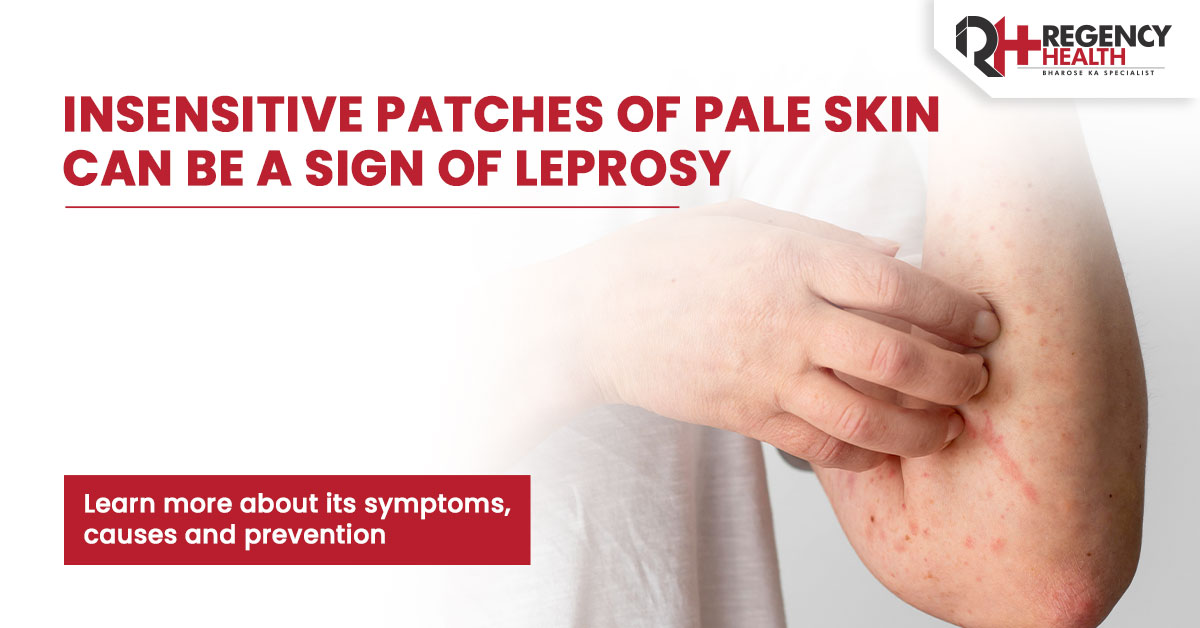
What is leprosy disease?
Hansen’s disease, commonly known as Leprosy, is an infectious condition caused by bacteria (Mycobacterium leprae). It can harm your nerves and cause disfiguring sores on your eyes, skin, mucous membranes, and skin. Leprosy has existed for ages but a lack of knowledge about the condition caused the isolation of people with leprosy. However, the improvement of medical science and the advancement of treatment methodologies have removed the necessity of isolation of leprosy patients.
Leprosy can affect persons of any age, however, it tends to strike primarily those over 30 or between the ages of 5 and 15. Research suggests more than 95% of people who contract Mycobacterium leprae are not affected by leprosy because their bodies can fight off the infection.
Leprosy Causes
Leprosy is caused by Mycobacterium leprae, a slow-growing pathogen. Leprosy is also known as Hansen’s disease, named after the scientist who discovered M. Leprae in 1873. Sneezing and coughing by an infected person can also be a cause of the spread of leprosy. Leprosy is spread by close personal contact with an affected person. It cannot be passed on through innocuous interactions such as handshakes, hugs, or sitting next to an infected person on a bus or at a table while eating.
Leprosy Symptoms
Leprosy mostly affects the skin and peripheral nerves, which are located outside of the brain and spinal cord. It may also strike your eyes and the delicate tissue that covers the inside of your nose. The major symptom is disfiguring skin lesions, lumps, or bumps that persist for several weeks or months. The sores are flatter and paler than the surrounding skin.
Here are some symptoms of Leprosy disease given below
- Patches of skin that may be red or have lost their colour.
- Patches of skin without or with decreased sensation.
- YoPeripheraur hands, feet, arms, and legs may feel numb or tingly.
- Burns or wounds that cause no pain in the hands and feet
- nerve enlargement
When the illness is advanced, it may result in:
- Paralysis.
- Loss of vision
- Alteration to the nose.
- Injury to the hands and feet that is permanent.
- The fingers and toes become shorter.
- Ulcers on the bottom of the feet that are chronic
After contracting the Mycobacterium leprae infection, leprosy symptoms take between three and five years to manifest. It may potentially take up to two decades in rare circumstances. This is why it is challenging for medical professionals to pinpoint the time and location of the infection because of this.
Leprosy Treatment
Treatment of Leprosy disease is determined by the type you have. Antibiotics are used to treat infections. Doctors typically recommend long-term treatment, lasting 6 months to a year. If you have severe leprosy, you may need to continue taking antibiotics for an extended period. Antibiotics cannot treat the nerve damage that can result from the condition.
Multidrug therapy (MDT), is one of the key methods used to treat leprosy. Mostly, your doctor will recommend two to three different antibiotics at once. This aids in the prevention of antibiotic resistance, which develops when bacteria mutate and resist the antibiotics that ordinarily kill them. Dapsone, rifampin, and clofazimine are typical antibiotics used to treat Hansen’s disease. The potential nerve damage that Hansen’s illness may cause cannot be treated with antibiotics. To treat any nerve discomfort, your doctor may also recommend anti-inflammatory medications, such as steroids.
Leprosy (Hansen’s disease) treatment often lasts between one to two years. Your healthcare professional will keep an eye on your development during this period. If you have been affected by Leprosy, you must get help immediately and visit your nearby multi super speciality hospital. The severity of your symptoms will decrease the sooner you start taking antibiotics. Your doctor will select the most appropriate antibiotics for your condition, and they’ll keep an eye on you over the following several years to help you out in the treatment process.
Leprosy is an ancient disease that is rare and continues to impact people today. But it is curable with medications. If you believe you have been exposed to it, visit a doctor immediately.

 Call-an-Ambulance
Call-an-Ambulance



